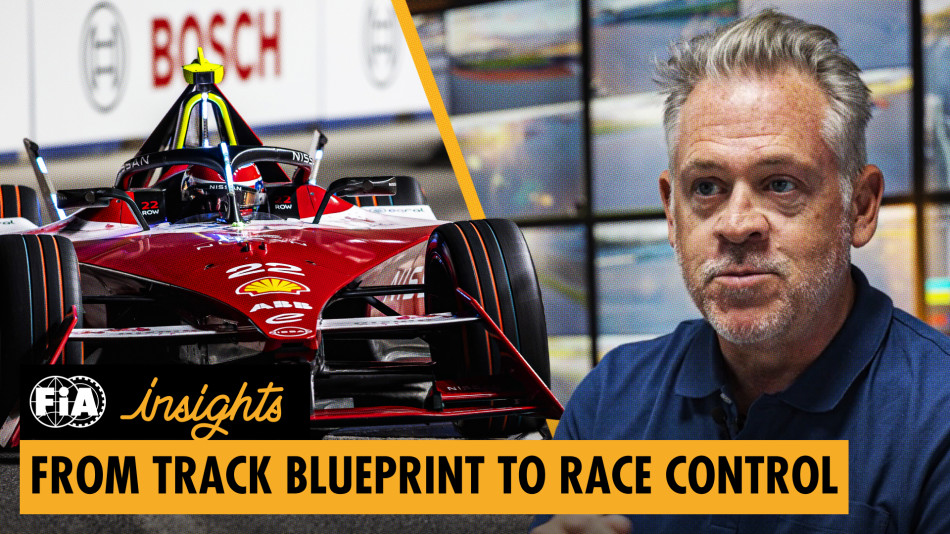KEEPING A STEADY HAND ON THE TILLER IN THE ABB FIA FORMULA E WORLD CHAMPIONSHIP
‘FIA Insights’ goes behind-the-scenes to explore the epicentre of events in the all-electric series – Race Control.

The latest short film from the ‘FIA Insights’ series shines a spotlight on Race Control in the ABB FIA Formula E World Championship, and the relationship between the Race Director, drivers and stewards.
Entitled ‘From Track Blueprint to Race Control’, the episode goes right to the nerve centre of a Formula E race weekend. Scot Elkins fulfils the role of both track inspector and Race Director in the all-electric single-seater series, and it is down to the experienced American and his dedicated and capable team to ensure that everything progresses safely and smoothly.
“Being an FIA Race Director is really simple,” Elkins explains. “When the cars are on-track, that’s when we’re responsible for what happens – we’re responsible for the safety, we’re responsible for the event happening, we’re responsible for responding to any incidents, whether that’s contact between cars or the track changing and something needing to be repaired.
“We have practice sessions and qualifying sessions and races, just like every other race series. It’s just a little different and a little more intense for us because we do it all in one day.”
Elkins acknowledges that the unique nature of Formula E – with many of the E-Prixs taking place on temporary street circuits in the heart of city centres surrounded by unforgiving walls – necessitates different protocols and recovery procedures when on-track incidents do occur, while elaborating upon the ‘special’ relationship between race control and the stewards, which he likens to ‘a separation of church and state’.
It is the stewards – at least three in-place at every event – who are tasked with making sure the rules are followed to the letter, by exploiting the resources at their disposal in all investigations.
“They’re there to do a job,” says NEOM McLaren Formula E Team star, Sam Bird. “They make decisions based on the regulations. There are no hard feelings. They don’t discriminate against certain people. It’s normally fairly black-and-white. There are situations that are more difficult, but overall, over the course of the season, they do a very good job.”
There is a similarly positive relationship between competitors and race control, adds Jaguar TCS Racing ace, Nick Cassidy.
“There’s a good amount of mutual respect between the Race Director and the drivers,” opines the current championship leader. “Drivers’ briefings are mostly quite constructive. You can talk about things really openly, and a lot of the things the drivers say get taken on-board. That mutual respect is a really nice thing in the championship.”

 Facebook
Facebook Twitter
Twitter






